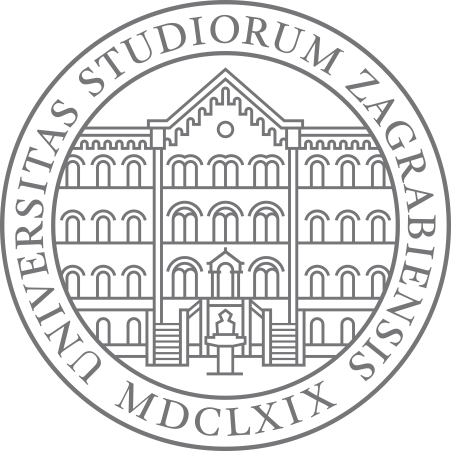
Legal representative
Professor Stjepan Lakušić
+385 1 456 42 55
rector@unizg.hr
The University of Zagreb is the flagship educational institution in the country with 31 faculties, 3 art academies and various university centres and departments. As a comprehensive public Central European university, UNIZG offers education programmes in all scientific fields (arts, biomedicine, biotechnology, engineering, humanities, natural sciences and social sciences) and a broad spectrum of courses at all study levels, from undergraduate to postgraduate for more than 70,000 students. The University excels not only in teaching, but also in research, contributing with over 50 percent to the annual research output of Croatia.
University of Zagreb Faculty of Electrical Engineering and Computing (UNIZG-FER)
Faculty of Electrical Engineering and Computing is the largest technical faculty and leading educational and R&D institution in the fields of electrical engineering, information and communication technology and computing in the Republic of Croatia. Being a constituent of the University of Zagreb, FER has its roots in the Technical Faculty, founded in 1919. In 1956, the departments of Technical Faculty grew into four new faculties, Faculty of Electrical Engineering being one of them. The Faculty offers today substantial educational and R&D facilities including 35 lecture halls, more than 60 laboratories, Congress centre, tele-conference centre, central library and 12 department libraries, student restaurant, sport and recreation facilities on 43308 m2. The Faculty is organised in 12 departments which represent the focal points of education, research and development in various fields. The present research and educational staff comprises more than 190 professors and 202 teaching and research assistants and around 3300 students at the undergraduate and graduate level and 326 PhD students. All those numbers clearly emphasize highly spirited activities in teaching and research.
The Faculty has developed valuable international cooperation with many research institutions around the world, either directly or through inter-university cooperation.
Currently FER participates in 135 projects, both EU and national, financed by various grant schemes such as:
- Croatian Science Foundation (HRZZ) – 61 projects
- Horizon – 14 projects
- Erasmus+ – 11 projects
- Other – 10 projects
- COST – 10 projects
- H2020 – 8 projects
- National Recovery and Resilience Plan 2021-2026 (NPOO) – 5 projects
- Bilateral – 5 projects
- Digital Europe Programme (DIGITAL) – 3 projects
- European Defence Fund (EDF) – 3 projects
- European Social Fund – 2 projects
- INTERREG 2021.-2027. – 1 project
- Maritime, Fisheries and Aquaculture Fund (EMFAF) – 1 project
- European Space Agency (ESA) – 1 project
The number of international projects in the last five years makes Faculty of Electrical Engineering and Computing one of the most internationally active institutions in Croatia.
FER stands out for its extensive engagement in Erasmus+ projects, exemplified by successful initiatives like INNOSOC (https://erasmus-plus.ec.europa.eu/projects/search/details/2015-1-HR01-KA203-013124) and INNOSID (https://erasmus-plus.ec.europa.eu/projects/search/details/2019-1-HR01-KA203-060959). FER’s adept management of these projects reflects its competence in international collaboration, showcasing the faculty’s commitment to fostering meaningful partnerships. In addition to its Erasmus+ endeavors, FER has established itself as a hub for facilitating international exchanges and promoting student mobility. Recognizing the enduring impact of these experiences, the faculty considers them pivotal for evaluating the sustained benefits of intercultural encounters. This strategic emphasis on interculturality is more than a mere educational pursuit; it represents a fundamental aspect of FER’s vision, enriching the overall learning experience. FER’s dedication to providing students with opportunities to explore diverse perspectives is commendable. This commitment goes beyond theoretical understanding, offering practical insights into the interconnected nature of our global society. By nurturing an appreciation for different cultures, FER prepares its students to navigate and contribute meaningfully to an increasingly globalized world.
There are two key people with practical experience in interculturality who will constitute the team for this project (Jurica Babić and Vedran Podobnik).
Jurica Babić is an Associate Professor at the UNIZG-FER. He is a member of the “Social Networking and Computing Laboratory (socialLAB)” and the “Laboratory for Assistive Technologies and Alternative and Augmentative Communication (ICT-AAC)”. His research interests include green transportation with a special focus being placed on electric vehicles. He currently supervises several Ph.D. projects on sustainable transport. He has experience in the research and development of inclusive digital applications (ICT-AAC apps – http://www.ict-aac.hr/index.php/hr/aplikacije). He also participates in the
SUZA programme (“from school to science and academia”) by conducting workshops on programming. He was a web & social media administrator within the ERASMUS+ KA2 project INNOSOC and served as a project manager within the Erasmus+ project TEAMSOC21. He attended three transnational cooperation activity (TCA) seminars on topics including visibility, impact, sustainability, gamification, and project-based learning. He was the coordinator of the ERASMUS+ KA2 project INNOSID and serves as the ambassador for social inclusion and diversity (appointed by the Croatian NA, i.e. AMPEU, in 2022). Currently he acts as the coordinator of the ERASMUS+ KA2 project PLAY2GREEN (https://erasmus-plus.ec.europa.eu/projects/search/details/2022-1-HR01-KA220-HED-000088675).
Second, Vedran Podobnik received M.Eng. (2006, Electrical Engineering) and Ph.D. (2010, Computer Science) degrees from the UNIZG-FER, Zagreb, Croatia, as well as M.Phil. (2013, Technology Policy) degree from the University of Cambridge, Judge Business School, Cambridge, UK. From 2016 he is an Associate Professor at the Department of Telecommunications. He is the founder and Director of the “Social Networking and Computing Laboratory (socialLAB)”. He led several national and international scientific and industrial green-related projects. His teaching and research activities are in a transdisciplinary field of smart networks, social computing and technology policy. He co-authored over 70 papers, including publications in Information Sciences, AI Magazine and Cybernetics and Systems journals. Assoc. Prof. Podobnik is a member of IEEE, ACM, INFORMS and KES International associations, as well as Cambridge Union Society. Vedran Podobnik is one of cofounders of the student incubator SPOCK. He was also a project coordinator of the ERASMUS+ projects TEAMSOC 21 and INNOSOC financed by the EU.